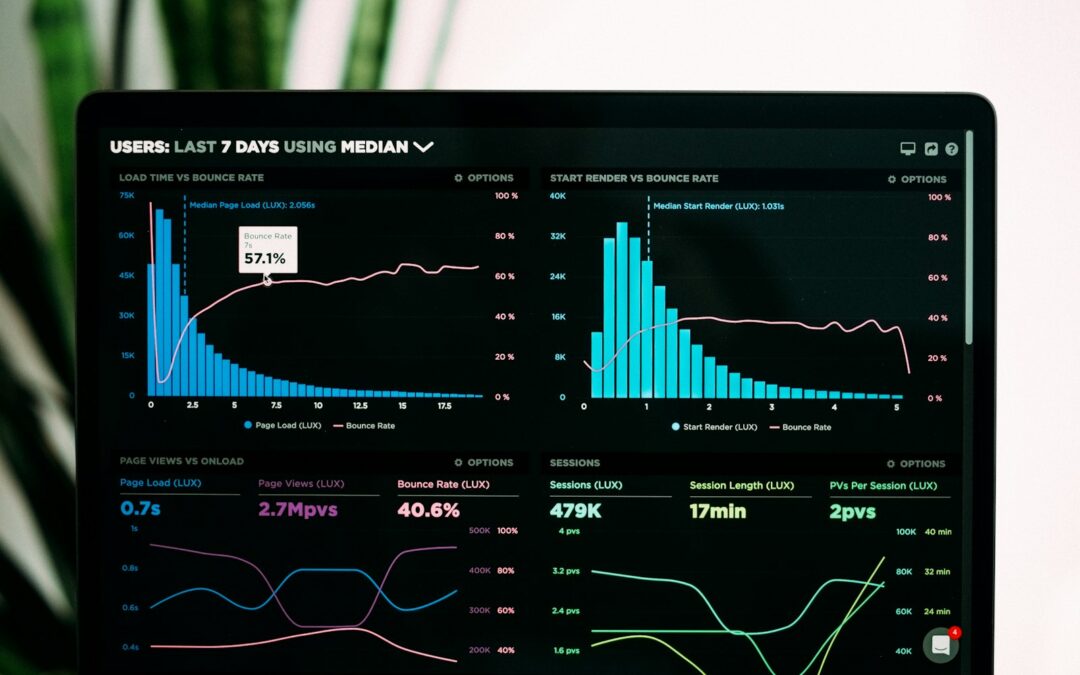Reducing Errors and Inaccuracies through Automation
The Importance of Data Integrity in IoT Systems
Automated data integrity checks in IoT systems play a crucial role in ensuring the accuracy and reliability of data across various applications. In rapidly developing regions such as Saudi Arabia and the UAE, where smart city initiatives in Riyadh and Dubai are becoming increasingly prevalent, maintaining data integrity is essential for the seamless operation of IoT deployments. By leveraging automated systems, organizations can significantly reduce the risk of errors and inaccuracies, which can otherwise lead to costly operational inefficiencies and compromised decision-making processes.
In IoT ecosystems, data is continuously generated from a multitude of devices, ranging from environmental sensors to industrial machinery. This vast amount of data must be accurately collected, processed, and analyzed to provide meaningful insights. However, manual data integrity checks are often prone to human error, leading to discrepancies and potential data corruption. Automated data integrity checks offer a solution by consistently monitoring and validating data in real-time, ensuring that only accurate and reliable data is used for analysis.
For example, in Dubai’s smart transportation systems, automated data integrity checks can ensure that traffic data collected from various sensors is accurate and up-to-date. This accuracy is crucial for managing traffic flow, reducing congestion, and enhancing public safety. By implementing automated checks, the transportation authority can prevent data anomalies and ensure that the system operates efficiently, providing a better experience for commuters.
Technological Advancements Driving Automation
The integration of artificial intelligence (AI) and machine learning (ML) technologies has been a game-changer in enhancing automated data integrity checks in IoT systems. These technologies enable the development of sophisticated algorithms that can detect and correct data anomalies in real-time. AI and ML models can learn from historical data patterns and predict potential errors, allowing for proactive measures to be taken before any significant issues arise.
In Riyadh’s smart energy management systems, for instance, AI-driven automated data integrity checks can continuously monitor energy consumption data from various sources. By identifying patterns and anomalies, these systems can predict and rectify errors, ensuring accurate billing and efficient energy distribution. This proactive approach not only enhances operational efficiency but also builds trust among consumers and stakeholders.
Furthermore, blockchain technology offers an additional layer of security and transparency for data integrity in IoT systems. By creating immutable records of data transactions, blockchain ensures that data cannot be tampered with or altered. In the UAE’s financial sector, for example, blockchain-based automated data integrity checks can enhance the security of transaction data, reducing the risk of fraud and ensuring compliance with regulatory standards. The combination of AI, ML, and blockchain technologies provides a robust framework for maintaining data integrity in complex IoT environments.
Implementing Effective Data Integrity Solutions
Implementing automated data integrity checks requires a strategic approach that considers the unique needs and challenges of each IoT deployment. Organizations must first identify the critical data points that require monitoring and establish clear protocols for data validation and correction. This involves selecting appropriate technologies and tools that can seamlessly integrate with existing IoT infrastructure.
In Saudi Arabia’s healthcare sector, automated data integrity checks can play a pivotal role in ensuring the accuracy of patient data collected from IoT-enabled medical devices. By integrating AI-powered analytics and blockchain technology, healthcare providers can maintain accurate and secure patient records, improving the quality of care and reducing the risk of medical errors. Implementing such solutions requires collaboration between technology providers, healthcare professionals, and regulatory bodies to ensure compliance with industry standards and best practices.
Training and support are also essential components of successful implementation. Organizations must invest in training their staff to effectively use and manage automated data integrity systems. This includes understanding how to interpret data validation reports, troubleshoot issues, and continuously improve the system based on feedback and evolving needs. By fostering a culture of continuous learning and improvement, organizations can maximize the benefits of automated data integrity checks and enhance the overall reliability of their IoT deployments.
Benefits of Automated Data Integrity Checks in IoT Deployments
Enhancing Operational Efficiency
One of the primary benefits of automated data integrity checks in IoT deployments is the significant enhancement of operational efficiency. By automating the process of data validation, organizations can eliminate the time-consuming and error-prone task of manual checks. This allows for more efficient use of resources and enables staff to focus on higher-value tasks that contribute to strategic objectives.
In Dubai’s smart building management systems, automated data integrity checks can ensure the accuracy of data related to energy consumption, temperature control, and security systems. This accurate data allows building managers to optimize energy usage, reduce costs, and maintain a comfortable and secure environment for occupants. The automation of data integrity checks thus contributes to more sustainable and efficient building operations, aligning with Dubai’s vision of becoming a leading smart city.
Improving Decision-Making and Strategic Planning
Accurate and reliable data is the foundation of effective decision-making and strategic planning. Automated data integrity checks ensure that decision-makers have access to high-quality data, enabling them to make informed decisions that drive business success. In regions like Saudi Arabia and the UAE, where rapid development and innovation are key priorities, the ability to leverage accurate data is crucial for maintaining a competitive edge.
For example, in Riyadh’s smart agriculture initiatives, automated data integrity checks can ensure the accuracy of data related to soil moisture, weather conditions, and crop health. This accurate data allows farmers to make informed decisions about irrigation, fertilization, and pest control, leading to increased crop yields and sustainable farming practices. By improving the quality of data available for decision-making, automated data integrity checks support the development of innovative solutions that address the unique challenges of the region.
Ensuring Compliance and Risk Management
Compliance with regulatory standards and effective risk management are critical aspects of IoT deployments, particularly in sectors such as healthcare, finance, and critical infrastructure. Automated data integrity checks provide a reliable means of ensuring that data complies with industry regulations and standards, reducing the risk of non-compliance and associated penalties.
In the UAE’s financial sector, for example, automated data integrity checks can ensure that transaction data complies with international standards for security and accuracy. This reduces the risk of financial fraud and enhances the trust of customers and stakeholders. Similarly, in Saudi Arabia’s healthcare sector, automated checks can ensure that patient data complies with health regulations, protecting patient privacy and ensuring the accuracy of medical records. By providing a reliable framework for compliance and risk management, automated data integrity checks enhance the overall security and integrity of IoT deployments.
In conclusion, automated data integrity checks in IoT offer a comprehensive solution for ensuring the accuracy and reliability of data across various applications. By leveraging advanced technologies such as AI, ML, and blockchain, organizations in Saudi Arabia, the UAE, and beyond can enhance operational efficiency, improve decision-making, and ensure compliance with regulatory standards. Implementing automated data integrity checks requires a strategic approach, but the benefits in terms of reduced errors, improved data quality, and enhanced operational outcomes are well worth the investment. As IoT deployments continue to grow and evolve, automated data integrity checks will play an increasingly vital role in maintaining the integrity and reliability of IoT systems.
—
#AutomatedDataIntegrityChecksInIoT #IoTDataAccuracy #IoTErrorReduction #DataIntegrity #SmartCities #SaudiArabia #UAE #Riyadh #Dubai













